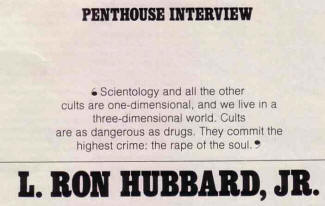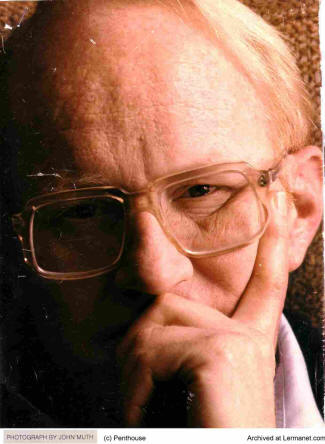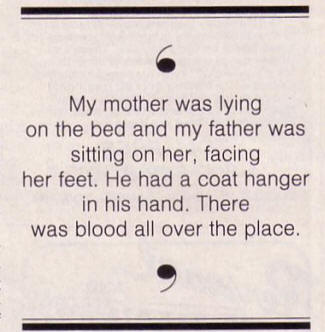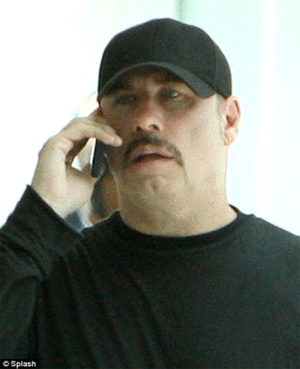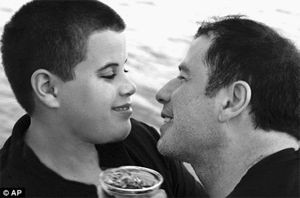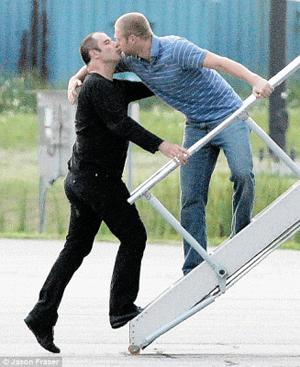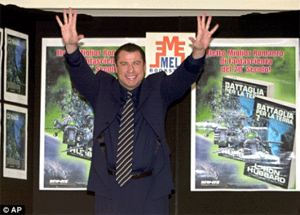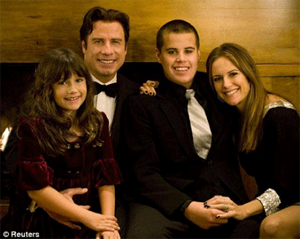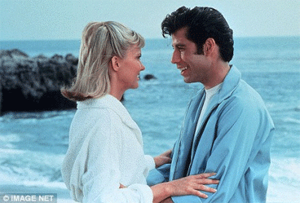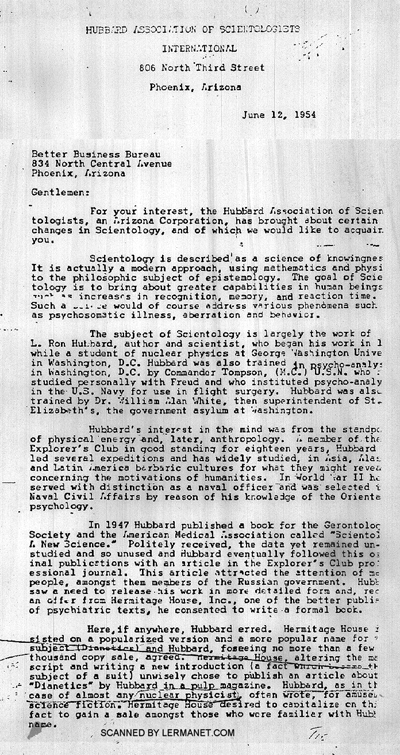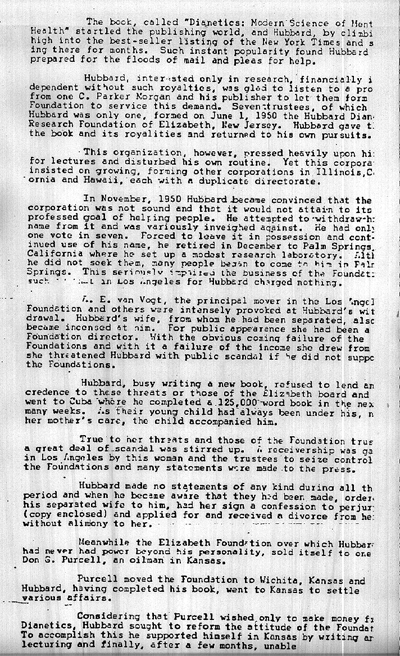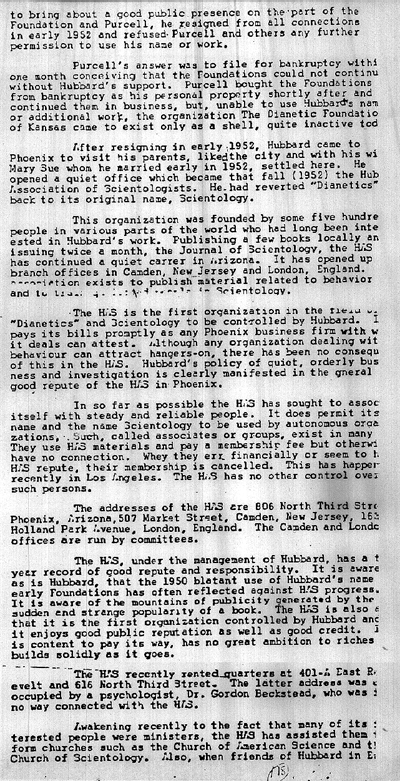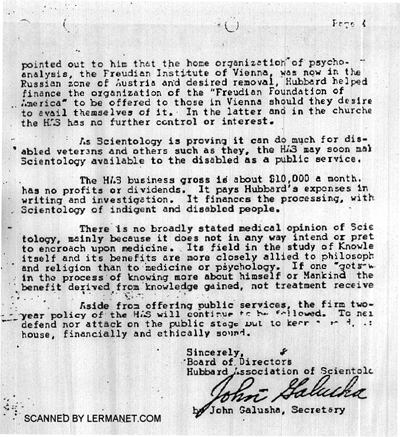by Jon Atack
I stand before you having been accused in print by L. Ron Hubbard's followers of having an avid interest in black magic. I would like to put firmly on record that whatever interest I have is related entirely to achieving a better understanding of the creator of Dianetics and Scientology. Hubbard's followers have the right to be made aware that he had not only an avid interest, but that he was also a practitioner of black magic. Today I shall discuss these matters in depth, but I shall not repeat all of the proofs which already exist in my book A Piece of Blue Sky (1).
Scientology is a twisting together of many threads. Ron Hubbard's first system, Dianetics, which emerged in 1950, owes much to early Freudian ideas (2). For example, Hubbard's "Reactive Mind" obviously derives from Freud's "Unconscious". The notion that this mind thinks in identities comes from Korzybski's General Semantics. Initially, before deciding that he was the sole source of Dianetics and Scientology (3), Hubbard acknowledged his debt to these thinkers (4). Dianetics bears marked similarities to work reported by American psychiatrists Grinker and Speigel (5) and English psychiatrist William Sargant (6). The first edition of Hubbard's 1950 text Dianetics: The Modern Science of Mental Health (7) carried an advertisement for a book published a year earlier (8). Psychiatrist Nandor Fodor had been writing about his belief in the residual effects of the birth trauma for some years, following in the footsteps of Otto Rank. In lectures given in 1950, Hubbard also referred to works on hypnosis which had obviously influenced his techniques (9). The very name "Dianetics" probably owes something to the, at the time, highly popular subject of Cybernetics. (10).
By 1952, Hubbard had lost the rights to Dianetics, having bailed out just before the bankruptcy of the original Hubbard Research Foundation. He had also managed to avoid the charges brought against that Foundation by the New Jersey Medical Association for teaching medicine without a license (11). In a matter of days in the early spring of 1952, Hubbard moved from his purported "science of mental health" into the territory of reincarnation and spirit possession. He called his new subject Scientology, claiming that the name derived for "scio" and "logos" and meant "knowing how to know". However, Hubbard was notorious for his sly humour and "scio" might also refer to the Greek word for a "shade" or "ghost". Scientology itself had already been used at the turn of the century to mean "pseudo-science" and in something close to Hubbard's meaning in 1934 by one of the proponents of Aryan racial theory (12). Other possible links between Hubbard's thought and that of the Nazis will be made clear later in this paper.
Scientology seems to be a hybrid of science-fiction and magic. Hubbard's reflection on philosophy seem to derive largely from Will Durant's Story of Philosophy (13) and the works of Aleister Crowley. Aleister Crowley is surely the most famous black magician of the twentieth-century. It is impossible to arrive at an understanding of Scientology without taking into account its creator's extensive involvement with magic. The trail has been so well obscured in the past that even such a scholar as Professor Gordon Melton has been deceived into the opinion that Hubbard was not a practitioner of ritual magic and that Scientology is not related to magical beliefs and practices. In the book A Piece of Blue Sky, I explored these connections in detail. The revelations surrounding Hubbard's private papers in the 1984 Armstrong case in California makes any denial of the connections fatuous. The significances of these connections is of course open to discussion.
The chapter in A Piece of Blue Sky that describes Hubbard's involvement with the ideas of magic is called His Magickal Career. I hope I shall be excused for relying upon it. I shall also here describe further research, and comment particularly upon Hubbard's use of magical symbols, and the inescapable view that many of the beliefs and practices of Scientology are a reformation of ritual magic (14).
In 1984, a former close colleague of Hubbard's told me that thirty years before when asked how he had managed to write Dianetics: The Modern Science Of Mental Health in just three weeks, Hubbard had replied that it had been automatic writing. He said that the book had been dictated by "the Empress". At the time, I had no idea who or what "the Empress" might be. Later, I noticed that in an article printed immediately prior to the book Dianetics, Hubbard had openly admitted to his use of "automatic writing, speaking and clairvoyance" (15). However, it took several years to understand this tantalising reference to the Empress.
In the 1930's, Hubbard became friendly with fellow adventure writer Arthur J. Burks. Burks described an encounter with "the Redhead" in his book Monitors. The text makes it clear that "the Redhead" is none other than Ron Hubbard. Burk said that when the Redhead had been flying gliders he would be saved from trouble by a "smiling woman" who would appear on the aircraft's wing (16). Burk put forward the view that this was the Redhead's "monitor" or guardian angel.
In 1945, Hubbard became involved with Crowley's acolyte, Jack Parsons. Parsons wrote to Crowley that Hubbard had "described his angel as a beautiful winged woman with red hair, whom he calls the Empress, and who had guided him through his life and saved him many times." In the Crowleyite system, adherents seek contact with their "Holy Guardian Angel".
John Whiteside Parsons, usually known as Jack, first met Hubbard at a party in August 1945. When his terminal leave from the US Navy began, on Dec 6th, 1945, Hubbard went straight to Parsons' house in Pasadena, and took up residence in a trailer in the yard. Parsons was a young chemist who had helped set up Jet Propulsion Laboratories and was one of the innovators of solid fuel for rockets. Parsons was besotted with Crowley's Sex Magick, and had recently become head of the Agape Lodge of the Church of Thelema in Los Angeles. The Agape Lodge was an aspect of the Ordo Templi Orientis, the small international group headed by Aleister Crowley.
Parsons' girlfriend soon transferred her affection to Hubbard. With her, Hubbard and Parsons formed a business partnership, as a consequence of which Parsons lost most of his money to Hubbard. However, before Hubbard ran away with the loot, he and Parsons participated in magical rituals which have received great attention among contemporary practitioners.
Parsons and Hubbard together performed their own version of the secret eighth degree ritual (17) of the Ordo Templi Orientis in January 1946. The ritual is called "concerning the secret marriage of gods with men" or "the magical masturbation" and is usually a homosexual ritual. The purpose of this ritual was to attract a woman willing to participate in the next stage of Hubbard and Parsons' Sex Magick.
Hubbard and Parsons were attempting the most daring magical feat imaginable. They were trying to incarnate the Scarlet Woman described in the Book of Revelation as "Babylon the Great, the Mother of Harlot and Abominations of the Earth...drunken with the blood of saints, and with the blood of the martyrs of Jesus."(18). During the rituals, Parsons described Babalon as "mother of anarchy and abominations". The women who they believed had answered their call, Majorie Cameron, joined in with their sexual rituals in March 1946.
Parsons used a recording machine to keep a record of his ceremonies. He also kept Crowley informed by letter. The correspondence still exists. Crowley wrote to his deputy in New York "I get fairly frantic when I contemplate the idiocy of these louts".
Crowley was being disingenuous. His own novel The Moonchild describes a ritual with a similar purpose. Further, the secret IXth degree ritual of the Ordo Templi Orientis (19) contains "Of the Homunculus" in which the adept seeks to create a human embodiment of one of the energies of nature - a god or goddess. The ritual says "to it thou are Sole God and Lord, and it must serve thee."
In fact, Hubbard and Parsons were committing sacrilege in Crowley's terms. Crowley respelled "Babylon" as he respelled "magic". His magick was entirely dedicated to Babalon, the Scarlet Woman. Crowley believed himself the servant and slave of Babalon, the antichrist, styling himself "The Beast, 666". For anyone to try to incarnate and control the goddess must have been an impossible blasphemy to him. Crowley, after all, called Babalon "Our Lady".
Hubbard and Parsons attempt did not end with the conception of a human child. However, just as Crowley said that "Gods are but names for the forces of Nature themselves" (21), so it might be speculated that Hubbard embodied Babalon not in human form, but through his organization.
Parsons sued Hubbard in Florida in July 1946, managing to regain a little of his money. The record of their rituals was later transcribed and has since been published as The Babalon Working (22). Parsons made a return to Magick, writing The Book of The Antichrist in 1949 (23). Parsons pronounced himself the Antichrist. In a scientology text, Hubbard spoke favourably of Parsons, making no mention of their magical liaison (24). A Piece of Blue Sky covers Hubbard's involvement with Parsons in much greater detail than I have given here.
Hubbard's interest in the occult was kindled long before he met Parsons. It dates back at least to his membership of the Ancient and Mystical Order Rosae Crucis or AMORC, in 1940. Hubbard had completed the first two neophyte degrees before his membership lapsed, and later there were private complaints that he had incorporated some of the teaching he had promised to keep secret into Scientology (25).
Having stolen Parsons' girl and his money, Hubbard carried on with magical practices of his own devising. Scientology attempted to reclaim documents which recorded these practices in its case against former Hubbard archivist Gerald Armstrong. Some $280,000 was paid to publishers Ralston Pilot to prevent publication of Omar Garrison's authorised biography of Hubbard. However, Garrison retained copies of thousands of Hubbard's documents and showed me one which had been referred to in the Armstrong trial. The Blood Ritual is an invocation of the Egyptian goddess Hathor, performed by Hubbard during the late 1940's. As the name suggests, the ritual involved the use of blood. Hubbard mingled his own blood with that of his then wife (the girlfriend he had stolen from Parsons and with whom Hubbard contracted a bigamous marriage.)
In a 1952 Scientology lecture, Hubbard referred to "Aleister Crowley, my very good friend" (26). In fact, the two black magicians never met, and Crowley expressed a very low opinion of the man who he saw had tricked his disciple Jack Parsons. Even so, Hubbard had a very positive regard for Crowley, calling his work "fascinating" (27) and recommending one of his books to Scientologists. Having referred to Crowley as "The Beast 666", Hubbard said that he had "picked a level of religious worship which is very interesting." (28). He also made it clear that he had read the fundamental text of the Crowley teaching, The Book of the Law (29).
In his 1952 lectures, Hubbard also referred to the Tarot cards, saying that they were not simply a system of divination but a "philosophical machine". He gave particular mention to the Fool card, saying "The Fool of course is the wisest of all. The Fool who goes down the road with the alligators at his heels, and the dogs yapping at him, blindfolded on his way, he knows all there is and does nothing about it...nothing could touch him" (30).
The only Tarot pack which has a alligator on the Fool Card is Crowley's (31). When I interviewed Gerald Armstrong, Hubbard's archivist, in 1984, he told me of a Hubbard scale dating from the 1940's. At the base of the scale was the word "animals". It then ascended through "labourers, farmers, financiers, fanatics" and "the Fool" to "God". Hubbard seemed to have seen himself as the Fool and was perhaps trying to create a trampoline of fanatics through whom he could achieve divinity. Indeed, if Scientology could live up to its claims, then Hubbard would be a "godmaker".
Of course, the Tarot pack also contains the Empress card and knowing this it is finally possible to understand what Hubbard believed his Guardian Angel to be.
Crowley examined the Tarot in The Book of Thoth (32). Of the Empress card he said "She combines the highest spiritual with the lowest material qualities" (33). Crowley identifies the Empress as the "Great Mother" and indeed on her robe are bees (34), the traditional symbol of Cybele. Crowley is not alone in the belief that different cultures give different names to the same deities. The worship of Cybele goes back to at least 3,000 B.C. She entered Greek culture as Artemis and to the Romans was Diana, the huntress. Crowley also identified the Empress with the Hindu goddess Shakti (35), and the Egyptian goddess Isis and Hathor. Crowley directly identified Isis with Diana (36). More usually, Crowley called the Empress by the name Babalon (37).
Contemporary New Age groups see the Great Mother in the aspect of Gaia the Earth Mother. This is far from Crowley's view. Diana, the patroness of witchcraft (38) was seen by Hubbard rather through the eyes of Crowley than as a benevolent, loving mother. Hubbard made no reference for example to Robert Graves' White Goddess, but only to Crowley and peripherally to Frazer's Golden Bough and Gibbon's Decline and Fall, both or which give reference to the cult of Diana. To Crowley, the Great Mother, Babalon, is, of course, also the antichrist.
While Crowley's path was submission to the Empress, Hubbard seems to have tried to dominate the same force, bringing it into being as a servile homunculus. Hubbard's eldest son, although a questionable witness, was insistent that his father taught him magic and privately referred to the goddess as Hathor. The Blood Ritual confirms this assertion if nothing else.
Publicly, Hubbard was taken with the Roman name of the goddess, Diana, giving it to one of his daughters and also to one of his Scientology Sea Organization boats. Curiously this boat had been renamed The Enchanter and before Scientology he had owned another called The Magician. Hubbard had also used Jack Parsons' money to buy a yacht called Diane (39). "Dianetics" may also be a reference to Diana. Shortly before its inception, another former US Navy Officer and practitioner of the VIIIth degree of the Ordo Templi Orientis had formed a group called Dianism (40).
When The Blood Ritual was mentioned during the Armstrong trial in 1984, Scientology's lawyer asserted that it was an invocation of an Egyptian goddess of love (41). Hathor is indeed popularly seen as a winged and spotted cow which feeds humanity. However, there is an important lesson about Scientology in the practice of magicians. The teachings of magic are considered by many practitioners to be powerful and potentially dangerous and therefore have to be kept secret. One of the easiest ways to conceal the true meaning of a teaching is to reverse it. By magicians Hathor is also seen as an aspect of Sekmet, the avenging lioness. One authority on ritual magic has revealed the identity of Hathor as "the destroyer of man" (42). The important lesson is that Scientology has both a public and a hidden agenda. Publicly it is a Church, privately as the record of convictions shows, it is an Intelligence agency. Many public Hubbard works speak of helping people. In his largely secret Fair Game teachings, however, Hubbard is outspoken in his attack upon either critics of himself or his works. For example, in What is Greatness? Hubbard says "The hardest task one can have is to continue to love one's fellows despite all reasons he should not. And the true sign of sanity and greatness is so to continue." In one statement of the Fair Game Law, however, Hubbard said that opponents "May be tricked, sued or lied or destroyed" (43). Of practitioners unlicensed by him Hubbard said "Harass these persons in any possible way" (44). Nor did he exclude the possibility of murder against those who opposed him (45). The harassment of critics, may explain the dearth of academic research into Scientology. Hubbard's use of contradiction to captivate and redirect his followers is worthy of a separate study (46) but it has its roots in his study of magic. Perhaps he related his "Dianetics" also to Janus, the two-faced god whose name is sometimes called "Dianus".
While Hubbard was supposedly researching his Dianetics in the late 1940s, he was in fact engaging in magical rituals, and trying out hypnosis both on himself and others. During the 1984 Armstrong trial, extracts from Hubbard's voluminous self-hypnotic affirmations were read into the record. The statements, hundreds of pages of them, are written in red ink and Hubbard frequently drew pictures of the male genitalia alongside the text (47). Amongst his suggestions to himself we find, "Men are my slaves", "Elemental Spirits are my slaves" and "You can be merciless whenever your will is crossed and you have every right to be merciless" (48).
Black magic is distinguished from white in the desire of the practitioner to bring harm. "Maleficium" is the traditional word for such magic. The "Suppressive Person declare" and the "Fair Game Law" speak reams in terms of Hubbard's intent.
Scientology is a neo-gnostic system, which is to say that it teaches the attainment of insight through a series of stages. These stages are called by Scientologists "the Bridge to Total Freedom". The Bridge currently consists of some 27 levels. These levels might be compared to the initiations of magical systems. While the stages appear dissimilar to those of Crowley's Ordo Templi Orientis, it is worth noting that both systems consist of stages, that both have secret levels and that both are numbered with Roman numerals. Hubbard also shared with Crowley a numbering system which begins at 0 rather than 1.
The Scientology Bridge has as its end the creation of an "Operating Thetan". Hubbard used the word "thetan" to identify the self, the spirit which is the person. He claimed that the word derived from an earlier Greek usage of the letter theta for "spirit" (49). I have been unable to find such a usage, but can comment that the theta symbol is central to the Crowley system where it is found as an aspect of the sign used for Babalon. To Crowley, the theta sign represented the essential principles of his system - thelema or the will. (50)
By "Operating Thetan", Hubbard meant and individual or "thetan" able to "operate" freely from the physical body, able to cause effects at a distance by will alone. In Hubbard's words "a thetan exterior who can have but doesn't have to have a body in order to control or operate thought, life, matter, energy, space and time" (51). Hubbard used the term "intention" rather than "will" (52), but the goal of Scientology is clearly the same as that of the Crowley system. The Scientologist wishes to be able to control events and the minds of others by intention. This seems to be exactly what Crowley called "thelema". In a 1952 lecture, Hubbard recommended a book which he called "The Master Therion" (53). This was in fact one of Crowley's "magical" names. I have been advised by an officer of one of the Ordo Templi Orientis groups that the reference is most likely to Crowley's magnum opus Magick in Theory and Practice. In that work, Crowley gave this definition "Magick is the Science and Art of causing Change to occur in conformity with Will" (54). So the aim of both Crowley and Hubbard seems to have been the same.
As a recovering Scientologist, I must raise an ethical objection to the desire to control the minds of others without their consent. This is the purpose of many Scientology procedures (55), and can be seen either as deliberate "mind control" or as the black magician's contempt of others. Scientology is a curious hybrid of magic and psychology. After all, Hubbard boasted "we can brainwash faster than the Russians - 20 seconds to total amnesia" (56).
At the centre of Crowley's teaching is the notion that we can control our own destiny: "Postulate: Any required Change may be effected by the application of the proper kind and degree of Force in the proper manner through the proper medium of the proper object" (57); further "Every intentional act is a Magical Act" (58); "Every failure proves that one or more requirements of the postulate have not been fulfilled" (59). Hubbard taught that everything is down to the intention of the individual. He called such intentions "postulates". The victim of any negative event is said to have "pulled it in". Hubbard taught a contempt for "victims" and regarded sympathy as a low emotional condition (60). As Crowley put it "Man is ignorant of the nature of his own being and powers ... he may thus subjugate the whole Universe of which he is conscious to his individual Will" (61).
Hubbard was to employ or parallel so many of Crowley's ideas and approaches that it is impossible, especially with Hubbard's references to Crowley, to avoid comparison. For example, in his Dianetics: the Modern Science of Mental Health, Hubbard laid much emphasis on the recollection of birth. Crowley had earlier insisted that the magician must recall his birth (62). Crowley spoke of "A equals" (63), where Hubbard, again in Dianetics spoke of "A equals A equals A". Both men were noisy in their contempt for pyschotherapists (64). Both Hubbard and Crowley spoke of "past lives" rather than "reincarnation" (65). Indeed, the notion of past lives and their recollection is essential to both systems, as Crowley wrote "There is no more important task than the exploration of one's previous incarnations" (66). Scientology and Dianetics also rely upon the supposed recollection of previous incarnations. Crowley called this the "magical memory" (67).
Hubbard gave as the fundamental axiom of his system "Life is basically a static. A Life static has no mass, no motion, no wavelength, no location in space or in time." (68). Crowley was more succinct, called the self "nothing" (69). Hubbard was to say that even an "Operating Thetan" could not "operate" alone, and Crowley said "Even in Magick we cannot get on without the help of others" (70).
The first essential teaching of Scientology is that "reality is basically agreement" (71) or "reality is the agreed-upon apparency of existence" (72), which Crowley expressed as "The universe is a projection of ourselves; an image as unreal as that of our faces in the mirror...not to be altered save as we alter ourselves" (73). The controlling power of thought, or will, is evident in both systems, Crowley has it "we can never affect anything outside ourselves save only as it is also within us."(74).
Both men believed that truth is unobtainable in the material world. Crowley expressed it thus "There is no such thing as truth in the perceptible universe (75). Hubbard said "The ultimate truth...has no mass, meaning, mobility, no wavelength, no location in space, no space." (76)
Hubbard's concept of the "thetan exterior" - operating apart from the body - is found in Crowley's "interior body of the Magician" which can "pass through matter" (77). Both systems seek to get the spirit "out of the body" (78).
Crowley said "Evil is only an appearance...like good" (79), where Hubbard said that "goodness and badness...are considerations, and no other basis than opinion" (80).
Each spoke of a personal "universe" (81). Hubbard also followed in Crowley's footsteps with the insistence that the meaning of words should be clarified or "cleared" (82).
Crowley announced that Christ was "concocted" (83) which tallies with Hubbard's assertion that Christ was a hypnotic "implant" (84). Here the major difference between Crowley and Hubbard becomes apparent: Crowley was publicly outspoken about his views, Hubbard was careful to keep negative material secret. Scientology claims to be eclectic and non-denominational. Only in secret teachings is Hubbard's contempt for Christianity apparent (85).
The long series of lectures in which Hubbard called Crowley his "very good friend" and recommended his writings, centres on a technique called "creative processing" by Hubbard. It is unsurprising that this technique is common to magicians. Nowadays it is more usually known as "visualisation."
Scientology surely has the distinction of containing the largest collection of teachings produced by one man. There are more than a hundred books and over 2,500 recorded lectures. But there are also thousands of registered trademarks, including many symbols.
Many of these symbols have magical significance. It seems highly unlikely given his study of the occult that Hubbard was unaware of the earlier use of these symbols. The Scientology cross which Hubbard claimed to have seen in an old Spanish church in Arizona (86) is markedly similar to the Rosicrucian cross (87) and also to Aleister Crowley's OTO cross. Hubbard had been a member of the Rosicrucians. He had also commented on Crowley's Tarot which carries the OTO cross on the back of every card. Hubbard cannot have been ignorant of these uses.
The Scientology cross could also be seen as a crossed out cross, with potentially Satanic implications. It seems strange that Hubbard who called Scientology a "better" activity than Christianity (88) called Christ an invention (89) and said that the "Creator of Heaven" would be found "with beetles under the rocks" (90), should have adopted the exclusive Christian word "church", the garb of Christian ministers and the use of the cross as a symbol. But Scientology is based upon deception and contradictions.
The Rosicrucians and the Freemasons share a ritual called the "grave of fire" (91). A senior Rosicrucian who had also studied Scientology told me that the initiate lies on a carpet within a pattern of lapping flames. He claimed that Scientology's Religious Technology Center - or RTC - symbol was very similar.
The RTC symbol contains the Dianetics triangle, which is a common magical symbol, representing the door of the Cabala, the letter Daleth. Hubbard indeed assigned it to the Greek equivalent of Daleth, Delta. The triangle on its base is also the symbol of Set, the Egyptian god called by some "the destroyer of man", the male equivalent of Babalon. Indeed Crowley equates Set with Satan (93). The triangle is universally recognised as a sign of malign power. Alexandra David-Neel commented upon its use as such among the Tibetans. Her best-selling books of the 1930's contain many other possible comparisons with Hubbard's work.
The "S and double triangle" is a major symbol found throughout Scientology. The "S" supposedly represents "Scientology" and the two triangles Affinity-Reality- communication and Knowledge-Responsibility-Control. There is another possible interpretation. The "S" seen on its own can easily be seen as a snake. To Crowley, indeed, the "S" represented the tempting serpent, Satan. Perhaps Hubbard's "thetan" is pronounced to match with a lisped "satan"? He was after all wry in his humour. The two triangles can be assembled differently to form the Star of David, called the Seal of Solomon by magicians (94). This symbol allegedly represents "tetragrammaton" the holy name of God which must never be spoken. Perhaps breaking it apart is similar to hanging the Christian cross upside down.
Next we see the Sea Organization symbol. The five pointed star, or pentacle is the most commonly known symbol of magical power. It is held between two thirteen-leaved laurels. Armstrong told me in 1984 that judging by the papers in Hubbard's archive the creator of Scientology was more interested in numerology than any other aspect of magic.
Among the more seemingly fanciful claims of Hubbard's oldest son, L. Ron, junior, was that his father was the successor to the magicians who created Nazism. Nazism was certainly an authoritarian group, a protypical destructive cult. Recent revelations about leading Scientologist Thomas Marcellus' long-running direction of the Institute for Historical Review can only add to speculation (95). Dusty Sklar has said that had she known about Hubbard she would have used him in the last chapter of The Nazis and the Occult rather than Sun Myung Moon (96). L. Ron, junior, was sure that the teachings of the Germanen Orden and the Thule Society had passed directly to his father by courier. In this light, the white circle on a red square of Scientology's International Management Organization (97) can be readily compared to the Nazi flag. The four lightning flashes or "sig runes" are also common to Nazism. No explanation is given for these sig runes by Scientology. They also appear on the RTC symbol. At the time that both of these symbols were introduced, Hubbard also created the International Finance Police, headed by the International Finance Dictator. An unusual choice of words.

Hitler too had been aware of the power of occult symbols and rituals. Speaking of Freemasons, he said "All the supposed abominations, the skeletons and death's head, the coffins and the mysteries, are mere bogeys for children. But there is one dangerous element and that is the element I have copied from them. They form a sort of priestly nobility. They have developed an esoteric doctrine more merely formulated, but imparted through the symbols and mysteries in degrees of initiation. The hierarchical organization and the initiation through symbolic rites, that is to say, without bothering the brain by working on the imagination through magic and the symbols of a cult, all this has a dangerous element, and the element I have taken over. Don't you see that our party must be of this character...? An Order, the hierarchical Order of a secular priesthood." (98)
Having shown many comparisons between Crowley's work and Hubbard's, and having shown the common intent of both systems, I shall now move on to the secret rituals of Scientology. The attempt to obtain magical powers is certainly not unique to Hubbard and Crowley. Every culture seems to have its own approach.
One common element to most cultures is the belief in disembodied spirits. Disembodied spirits can be found in the teachings of all the major religions (99). Crowley shared with many the belief that such spirits can be used in the practice of magic (100). Most of the secret teachings of Scientology concern such disembodied spirits.
Toward the end of his life, Hubbard wrote some chirpy pop songs which were recorded under his direction (101). One of these songs, The Evil Purpose, begins "in olden days the populace was much afraid of demons and paid an awful sky high price to buy some priestly begones". The song goes on to explain that there are no demons, "just the easily erased evil purpose". In fact, the Operating Thetan levels are concerned almost entirely with "body thetans" or indwelling spirits or demons.
Hubbard first floated the idea to his adherents in spring 1952, during his first Scientology lectures (102). He spoke of "theta" as the life-force and went on to describe "theta beings" and "theta bodies". Mention was made again that June in the book What to Audit, which is still in print, minus a chapter - as Scientology: A History of Man. Here Hubbard said that we are all inhabited by seven foreign spirits, the leader of which he called the "crew chief". The idea did not find favour, so it was abandoned for fourteen years.
In December 1966, in North Africa, Hubbard undertook "research" into an incident which he claimed had occurred 75 million years ago. In a tape recorded lecture given in September, 1967, Hubbard announced his revelation to Scientologists. On the same tape he boasted about his wife Mary Sue Hubbard's use of "Professional Intelligence Agents" to steal files. His wife, the controller of all Scientology organizations subsequently went to prison. Scientology continues to claim that its creator knew nothing of the events that put his wife into prison, but also continues to sell the tape. Armstrong, Hubbard's former archivist has said that the Hubbard archive contains letters written while he was creating Operating Thetan level three. In his lecture, Hubbard claimed to have broken his back while researching. Armstrong told me in 1984 that Hubbard had in fact got very drunk and fallen down in the gutter. A doctor had been called out to him to deal with a sprain. Hubbard also detailed his drug use in this correspondence. In February, 1967, Hubbard flew to Los Palmas and the woman who attended him there has told me that he was taking enormous quantities of drugs and was in a very debilitated state.
The result of Hubbard's "research" was a mixture of science-fiction and old-fashioned magic. According to Hubbard, 75 million years ago, Xenu, the overlord of 76 planets, rounded up most of the people of his empire, some 178 billion per planet - and brought them to Earth. Here they were exploded in volcanoes using hydrogen bombs and the spirits or thetans collected on "electronic ribbons". Disoriented from the massacre, the disembodied thetans were subjected to some 36 days of hypnotic "implanting" and clustered together. From seven indwelling spirits per person Hubbard's estimate had gone into the thousands. The "implants" supposedly contained the blueprint for future civilizations, including the Christian teaching, 75 million years before Christ. Operating Thetan level three had to be kept secret, according to Hubbard, because the unprepared will die within two days of discovering its contents. The story has in fact been published in many newspapers without noticeable loss of life. Hubbard was so taken with his science fiction, that he finally wrote a screenplay called Revolt in the Stars about the "OT3" incident, ignoring his own warnings.
It is often the case with Hubbard's work that he has simply taken other ideas and dressed them up in new expressions. Careful study shows that Dianetics included such words as "operator", "reverie", and "regression" common to hypnotic practitioners at the time. On leaving Scientology, most people cannot see that the "body thetans" of Operating Thetan levels three to seven are in fact the demons of Christian belief. The "OT levels" are factually the most expensive form of exorcism known to man. Unfortunately, such beliefs and practices can have a severe effect upon practitioners, who take Hubbard's warning to heart and come to believe themselves multiple personalities. I have been called to help in several times in such instances.
Indeed, the whole process of "auditing" can be seen as an update of magical ritual. Scientology is a mixture of occult ritual and 1950s style psychotherapy. The adherents travel through increasingly expensive initiations with the hope of attaining supernatural powers. There are badges, symbols and titles for almost every stage of the way.
Other links with ritual magic have emerged. A peculiar event occurred aboard Hubbard's flagship, the Apollo, in 1973. Those aboard ship responsible for overseeing the management of Scientology organizations were involved in a ceremony called thee Kali ceremony after the Hindu goddess of destruction. The whole was staged very seriously, and the managers were led into a dimly lit hold of the ship and ordered to destroy models of their organizations. A few years before, a high-ranking Sea Organization Officer claims to have been ordered to Los Angeles where he was meant to mount an armed attack on a magician's sabat. He did not mount the attack but claims that the meeting happened exactly where Hubbard had told him it would.
In 1976, Hubbard ordered a secret research project into the teachings of gnostic groups. He had already carried out a project to determine which of his ship's crew members were "soldiers of light" and which "soldiers of darkness". The latter group were apparently promoted. Jeff Jacobsen has provided insight into a possible connection between Hubbard's OT levels and gnostic teachings (103). Jacobsen quotes from the third century Christian gnostic Valentinus: "For many spirits dwell in it (the body) and do not permit it to be pure; each of them brings to fruition its own works, and they treat it abusively by means of unseemly desires". Jacobsen goes on to cite the gnostic Basildes, man "preserves the appearance of a wooden horse, according to the poetic myth, embracing as he does in one body a host of such different spirits." Jacobsen points out that multiple possession seems to have been considered normal by these gnostics. Possession equates to madness in orthodox Christianity, and example of multiple possession are rare [the Gadarene swine for example]. Jacobsen draws other interesting parallels between gnosticism and Scientology.
Another former Sea Organization member affidavited a meeting in the 1970's with an old man whose description fitted Hubbard's. She claimed to have been taken to the top floor of a Scientology building by high-ranking officials and left there with this man, who performed the sexual act with her, but very slowly (104). Indeed, in the way advocated by Crowley and called karezzo. No outside witness has corroborated this statement.
I have already said that the public and private faces of Scientology are very different. The vast majority of Hubbard's followers are good people who genuinely believe that the techniques of Scientology can help the world. Most are ignorant of the hidden Fair Game teachings. Hubbard presented himself as a messiah, as Maitreya the last Buddha, but in fact he was privately a highly disturbed and frequently ill man. There are a number of reports of his drug abuse. He advocated the use of amphetamines (105). He admitted to barbiturate addiction (106) and was also at times a heavy drinker. His treatment of those around him was often deplorable. Although holding himself out as an authority on child-rearing, his relationship with his children was genuinely dreadful. He disowned his first son, barely saw his first daughter, and Quentin, the oldest son of his third marriage, committed suicide. Quentin had reached the highest level of Scientology twice. He was a Class XII auditor and a "cleared theta clear", but he was also a homosexual. Hubbard was publicly homophobic - saying that all homosexuals are "covertly hostile" or backstabbers. I have received alarming reports of his sexual behaviour. I must emphasise that these reports are not corroborated, so can only stand as allegations.. One Sea Organization officer claims to have witnessed a sexual encounter between Hubbard and a young boy in North Africa. Another claims that Hubbard admitted to a sexual relationship with one of his own children. It is impossible to substantiate such reports. But such behaviour would be in keeping with an extreme devotee of Aleister Crowley who said that in the training of a magician "Acts which are essentially dishonourable must be done." (107).
In conclusion, I believe that Hubbard was a classic psychopath. Some trauma in infancy separated him from the world and made him untrusting of other people. This developed into a paranoia, a need to control others. He created a dissociated world, inhabited by the Empress. Bear in mind that he actually saw the Empress in full colour, and that she spoke to him (108). From his comments about automatic writing and speaking, it could be averred that Hubbard was in fact "channeling" the Empress. Hubbard separated off a compartment of himself calling it the Empress and gave in to its urging. He lived a life of dreadful contradiction. He claimed expertise in all things, but factually was a failure at most. Some will see him as having a psychiatric complaint, others will believe that he invoked the very devil, or Babalon, and was possessed. Hubbard's own belief lives on with all of its contradictions in his teaching. Ultimately, as Fritz Haack put it, Scientology is twentieth-century magic.
References:
(1) Atack, Jon, Lyle Stuart Books, New Jersey 1990
(2) Sigmund Freud, Clarke Lectures 1-3, in Two Short Accounts of Psycho-Analysis, Penguin Books, London, 1962, Cf Hubbard "Dianetics: the Modern Science of Mental Health" and "The Dianetic Auditors Course"
(3) Hubbard HCO Policy letter "Keeping Scientology Working", 7 February 1965
(4) e.g. acknowledgements lists in Hubbard's "Science of Survival", 1951, and "Scientology 8-8008, 1952, Phoenix Lectures, p. 264
(5) Grinker and Speigel, "Men Under Stress", McGraw-Hill, New York, 1945
(6) Sargant, "Battle for the Mind", Heinemann, London, 1957. Hubbard had a copy of this book on his library shelf in Washington, D.C. in 1958. It also has relevance to other aspects of Scientology.
(7) Hermitage House, 1950
(8) Fodor, "The Search for the Beloved - a clinical investigation of birth and the trauma of prenatal conditioning", Hermitage House, 1949
(9) Wolfe & Rosenthal, Hypnotism Comes of Age, Blue Ribbon, NY, 1949, Young Twenty-Five Lessons in Hypnotism, Padell, NY, 1944. Both recommended by Hubbard in Research & Discovery, volume 2, p. 12, 1st edition.
(10) Jeff Jacobsen has written two interesting papers relevant to any discussion of the origins of Scientology. Dianetics: From Out of the Blue, the Skeptic, UK, March/April 1992, which discusses the origins of Dianetics and The Hubbard is Bare, 1992, a more general discussion including comments about Crowley and gnosticism. I have worked for some time on a set of papers which discuss Hubbard's plagiarism, as yet these are unavailable.
(11) A Piece of Blue Sky, pp. 119 & 125-126.
(12) A Piece of Blue Sky, pg. 128
(13) See particularly the chapters on Bergson and Spencer.
(14) See also Jacobsen's The Hubbard is Bare and Bent Corydon's L. Ron Hubbard, Messiah or Madman? Corydon relied upon excellent research by Brian Ambry but also upon L. Ron Hubbard jnr, whose credibility is questionable. See also L. Ron Hubbard, jnr, A Look Into Scientology or 1/10 of 1% of Scientology, manuscript, 1972.
(15) Hubbard, "Dianetics: The Evolution of a Science" originally printed in Astounding Science Fiction, May 1950. Republished by AOSH DK Publications Department, 1972, quotation from p. 56, see also p. 59.
(16) Burks, "Monitors" CSA Press, Lakemount, Georgia, 1967.
(17) King, Francis, The Secret Rituals of the OTO, C.W. Daniel, London, 1973.
(18) Revelation, chapter 17.
(19) Secret Rituals of the OTO
(20) Crowley, Magick in Theory and Practice, Castle Books, New York, p. 88
(21) Magick in Theory and Practice, p. 120
(22) There is contention between the various OTO groups about the Book of Babalon. Its existence is sometimes denied, and the OTO New York have claimed that only a fragment exists (published in Parsons, Freedom is a Two-Edged Sword, Falcon, Las Vegas, 1989) I have read three versions of the manuscript, one is the Yorke transcript, another is un-named. The third was published in vol.1, issue 3 of Starfire, London, 1989.
(23) Published by Isis Research, Edmonton, Alberta, 1980, ed Plawiuk
(24) Professional Auditors Bulletin, no. 110, 15 April 1957.
(25) Author's interview with 15th degree Rosicrucian, 1984.
(26) Hubbard, Philadelphia Doctorate Course, lecture 18 "Conditions of Space-Time- Energy".
(27) Philadelphia Doctorate Course, lecture 18
(28) Philadelphia Doctorate Course, lecture 35
(29) Philadelphia Doctorate Course, lecture 40
(30) Hubbard, Philadelphia Doctorate Course, lecture 1, "Opening, What is to be done in the Course".
(31) Thoth Tarot Deck, US Games Systems, NY, ISBN 0-913866-15-6.
(32) Crowley, The Book of Thoth, Samuel Weiser, Maine, 1984. First edition 1944.
(33) Book of Thoth, p. 75
(34) Book of Thoth, p. 76
(35) Francis King, The Magical World of Aleister Crowley, Arrow Books, p. 56
(36) Crowley, Confessions, Bantam, New York, 1971, p. 693.
(37) e.g, Book of Thoth, pp. 136
(38) Cavendish, The Magical Arts, Arkana, London, 1984, p. 304
(39) A Piece of Blue Sky, p. 99
(40) Francis King, Ritual Magic in England, Spearman, London, 1970, p. 161
(41) Litt, in Church of Scientology v Armstrong, vol. 26, p. 4607
(42) Hope, Practical Egyptian Magic, Aquaarian, Northants, 1984, pp. 39 & 47. (43) HCO Policy
(43) HCO Policy letter, Penalities for Lower Conditions, 18 October 1967, Issue IV.
(44) HCO Executive Letter, Ampriministics, 27 September IV.
(44) HCO Executive letter, Amprinistics, 27 September 1975.
(45) e.g. HCO Policy Letter, Ethics, Suppressive Acts, Suppression of Scientologists, the Fair Game Law, 1 March 1965. The offending part of the text was read into an English court judgment (Hubbard v Vosper, November, 1971, Court of Appeal). In USA v Jame Kember and Morris Budlong, in 1980, Scientology lawyers admitted that despite public representations Fair Game has never truly been "abrogated" (sentencing memorandum, District Court, Washington, D.C. criminal no. 78.401 (2) & (3), p. 16, footnote). The Policy Letter which did eventually cancel it, off 22 July 1980, was itself withdrawn on 8 September 1983. Unknown to MOST of its adherents, Fair game is still a scripture, and according to Hubbard's Standard Tech principle binding upon Scientologists. Hubbard issued a murder order in 1978 under the name "R2-45" (The Auditor issue 35). Thankfully, this order was not complied with.
(46) See for example the technique called False Data Stripping and Hubbard's comments on controlling people through contradictory instructions.
(47) Interview with Robert Vaughan Young, former Hubbard archivist, Corona Del Mar, April 1993.
(48) Affirmations, exhibits 500-4D, E, F & G, See Church of Scientology v Armstrong, transcript volume 11, p. 1886
(49) Hubbard, Dianetics and Scientology Dictionary, Church of Scientology of California, L.A., 1975, "theta" definition 6.
(50) The Babalon sign with a theta at the centre of a 7-pointed star is found in many of Crowley's works, e.g. The Book of Thoth. The winged sign of the OTO and the use of the theta sign can be found in various place, e.g. Equinox - Sex and Religion, Thelema Publishing Co., Nashville, 1981.
(51) Dianetics and Scientology Technical Dictionary, definition of "Operating Thetan".
(52) e.g., PAB 91, The Anatomy of Failure, 3 July 1956. See also definition of "Tone 40" in the Dianetics and Scientology Technical Dictionary, "giving a command and just knowing that it will be executed despite any contrary appearances"..
(53) Philadelphia Doctorate Course, lecture 18
(54) Crowley, Magick in Theory and Practice, p. xii
(55) e.g., Dissemination Drill, CCHS, Opening Procedure by Duplication, Mood TRS & Tone Scale Drills, TRS 6-8, TR-8Q, the FSM TR "How to control a conversation". On the OTVII practised up to 1982, the student was expected to telepathically implant thoughts into others.
(56) Technical Bulletin of 22 July 1956.
(57) Crowley, Magick in Theory and Practice, p. xiii
(58) ibid, p. xiii
(59) ibid. p. xiv.
(60) e.g. The Tone Scale. For a discussion of Scientology beliefs, see A Piece of Blue Sky, pp. 378.
(61) Crowley, Magick in Theory and Practice, p. xvi-xvii.
(62) ibid, p. 419
(63) ibid, p. 9
(64) e.g., Crowley, Magick in Theory and Practice, p. xxiv.
(65) e.g. Crowley, Magick in Theory and Practice, p. 228. Hubbard Have You Lived Before this Life?, Church of Scientology of California, L.A., 1977, p. 3
(66) Crowley, Magick in Theory and Practice, p. 50
(67) ibid. pp. 50 & 228
(68) Hubbard, Phoenix Lectures, Church of Scientology of California, Edinburgh, 1968, Scxientology Axiom 1, p. 146
(69) Crowley, Magick in Theory and Practice, p. 30
(70) ibid. p. 63
(71) Phoenix Lectures, p. 175
(72) Phoenix Lectures, p. 173, Scientology Axioms 26 & 27.
(73) Crowley, Magick in Theory and Practice, p. 110
(74) ibid. p. 121.
(75) ibid. p. 143-144
(76) Phoenix Lectures, p. 180, Scientology Axiom 35
(77) Crowley, Magick in Theory and Practice, p. 144.
(78) e.g., ibid, p. 147
(79) ibid, p. 153
(80) Phoenix Lectures, p. 180, Scientology Axiom 31.
(81) Crowley, Magick in Theory and Practice, p. 251. Hubbard, PAB 1, General Comments, 10 May 1953.
(82) Crowley, Magick Without Tears, Falcon Press, Phoenix, AZ, 1983, pp. xii, 26, 407 & 440. Hubbard, Dianetics and Scientology Technical Dictionary, definition of "word clearing". Korzybski also advocated understanding of words.
(83) Crowley, Magick Without Tears, p. 11
(84) HCO Bulletin, Confidential - Resistive Cases - Former Therapies, 23 September 1978.
(85) e.g. Hubbard, HCO Policy Letter Routine Three - Heaven, 11 May 1963 and the original preface to the Phoenix Lectures, Hubbard South Africa Association of Scientologists, Johannesburg, 1954 "God just happens to be the trick of this universe", p. 5. In HCO Bulletin Technically Speaking, of 8 July 1959, Hubbard said "The whole Christian movement is based on the victim...Christianity succeeded by making people into victims. We can succeed by making victims into people."
(86) What is Scientology?" Church of Scientology of California, first edition, 1978, p. 301
(87) H. Spencer Lewis, Rosicrucian Manual, AMORC , San Jose, 1982.
(88) Modern Management Technology Defined, definition of Church of American Science
(89) HCO Policy Letter, Former practices, 1968
(90) HCO Policy Letter, Heaven, 1963
(91) cf Hubbard's use of "wall of fire" to describe OT III & OT V. These may also be compared to gnostic ideas.
(92) The RTC symbol is frequently used, e.g., What is Scientology, 2nd edition, 1992, p. 92
(93) Magick Without Tears, p. 259
(94) Cavendish, p. 243
(95) Paul Bracchi, The Cult and a Right-Winger, Evening Argus, Brighton, England, 4 April 1995.
(96) Letter to the author. Sklar's book was published by Crowell, NY, 1977. It was originally released as Gods and Beasts. See also Gerald Suster Hitler and the Age of Horus, Sphere, London, 1981.
(97) This symbol is frequently used, e.g., What is Scientology, 2nd edition, 1992, p. 358
(98) Suster, Hitler and the Age of Horus, p. 138
(99) Francoise Stachan, Casting out the Devils, Aquarian Press, London, 1972. See also Alexandra David-Neel Initiates and Initiations in Tibet, pp. 168-169.
(100) Magick in Theory and Practice, p. 16
(101) The Road to Total Freedom, BPI records, L.A., 1986
(102) The Hubbard College Lectures
(103) The Hubbard is Bare
(104) Affidavit of Ann Bailey, p. 34
(105) e.g. Dianetics: The Modern Science of Mental Health, Bridge, L.A.m 1985, p. 389 or AOSHDK, Denmark, 1973, p. 363. See also the Research and Discovery series.
(106) The Research and Discovery Series, vol. 1, 1st edition 1980, Scientology Publications Org, p. 124
(107) Magick in Theory and Practice, p. 339
(108) Hubbard ordered that new dust sleeves should be put onto his books after he'd released OT3, in 1967. These book covers are supposedly meant to depict images from the 36 days of implanting and will supposedly compel people to buy the books. The cover for Hubbard's Scientology 8-80, Publications Department, AOSH Denmark, 1973, shows a winged couple. The woman could well be the Empress. A similar design was used on the dust sleeve of Hubbard's Scientology 8-8008 in the 1990 Bridge, L.A., edition.


